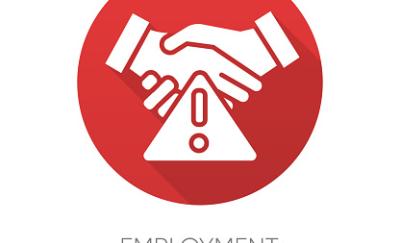
HUD Report to Congress Finds Fewer Families in Shelters, Suggesting Stronger Social Safety Net Is Working


Rockville, Md. – The U.S. Department of Housing and Urban Development (HUD) has released its Annual Homeless Assessment Report (AHAR) to Congress. Each year, the report provides the critical benchmark on the number of people known to be experiencing homelessness on a single night. This year’s report—which looks back at 2021—indicates that funding provided through the CARES Act for emergency rental assistance and other homelessness prevention, as well as nationwide eviction moratoria, helped keep more people—in particular families—out of shelters. However, nearly half of all communities were given waivers to the requirement that they conduct an unsheltered count, because doing so posed a high risk of exacerbating COVID-19 transmissions. Abt Global’s analysis includes an examination of unsheltered people from the small number of communities that did conduct a count, though it is not representative of the entire country.
Data by Populations
- Overall: On a single night in 2021, more than 326,000 people were experiencing sheltered homelessness in the United States. This number is an 8 percent decrease from 2020. The number of sheltered people in families with children declined considerably between 2020 and 2021, while the number of sheltered individuals remained relatively flat. In 2021, just over 131,000 families with children were experiencing sheltered homelessness, a decline of 15 percent since 2020. This was a much larger change than in the number of sheltered individuals, which dropped by only 2 percent, to 236,500 people in 2021. The declines are likely due to a combination of several factors, and the trends in sheltered homelessness should be viewed with some caution. Due to COVID, shelter programs often reduced their capacity or closed altogether if they were unable to provide the necessary physical distance for people staying there. In addition, communities noted that people expressed a hesitancy about seeking out shelter services during this time, again, due to COVID. However, information provided by communities revealed that a critical factor in reducing the sheltered count was likely the eviction moratoria and CARES Act and other funding that helped to prevent people from becoming homeless during the pandemic.
- By Race/Ethnicity: Between 2020 and 2021, the number of people experiencing sheltered homelessness who were white decreased by 5 percent, and--while still disproprtionately represented at 44 percent of the sheltered population-- the number of Black or African American people staying in shelters decreased by 12 percent. The number of Hispanic or Latino/a/x people experiencing sheltered homelessness decreased by 5 percent, while the number of non-Hispanic/non-Latino/a/x people declined by 9 percent.
- Veterans: Between 2020 and 2021, the number of sheltered veterans decreased by 10 percent. This represents the largest one-year decline since 2015-2016. In 2021, 19,750 veterans were experiencing sheltered homelessness; 8 percent of all sheltered adults experiencing homelessness were veterans.
- Youth: The 15,763 people under the age of 25 who experienced sheltered homelessness on their own as “unaccompanied youth” represent a decline of 9 percent from 2020. However, a few groups did experience increases. The number of youth who were transgender increased by 29 percent, and the number who were gender non-conforming increased by 26 percent.
- Chronically Homeless: While the overall sheltered individual population has declined, the number of chronically homeless individuals (i.e., individuals who were homeless for one year or longer and had a disabling condition) staying in shelter programs has increased in recent years, and did so by 20 percent between 2020 and 2021. These data emphasize the vulnerability of this population, who may not have had the same access to some of the homelessness prevention resources that were made available during the pandemic.
“The 2021 decline in people experiencing sheltered homelessness is proof that a stronger social safety net can make a difference,” said Abt’s Meghan Henry, AHAR’s research director and lead author. “It is our responsibility to act on this knowledge and continue to target additional resources to the most vulnerable among us.”
“The data in AHAR help Congress better understand which communities are hardest hit by homelessness, where and how we are making progress, and where we need to do more,” said Abt President and CEO Kathleen Flanagan. “We look forward to building on these insights, and our longstanding partnership with HUD, to continue reducing the number of people experiencing homelessness.”
Watch the video:
About Abt Global
Abt Global is a global consulting and research firm that combines data and bold thinking to improve the quality of people's lives. We partner with clients and communities to advance equity and innovation—from creating scalable digital solutions and combatting infectious disease, to mitigating climate change and evaluating programs for measurable social impact. https://www.abtglobal.com
Contact:
Eric Tischler
eric_tischler@abtassoc.com
(301) 347-5492
Read Our Latest News

Abt to Manage Australia’s Main Development Program for Fiji
The Australian Government recently awarded Abt Global a contract to managea $90 million umbrella program covering half of Australia’s development assistance to Fiji.

Abt Leads Decision Support for FCDO Land Governance Programme
Abt Global Britain has been appointed to lead the Decision Support Unit of the Land Facility, funded by the UK’s Foreign and Commonwealth Development Office.

Public Warning: Recruitment Phishing Scam Impersonating Abt Global
Abt Global has become aware of a phishing scheme targeting individuals with fraudulent interview requests and job offers. Abt’s secure IT systems and private applicant information have not been compromised; scammers are impersonating Abt employees, using the company name and branding to mislead and engage potential job seekers in fake recruitment processes. Scammers might reference real job openings or describe fake opportunities that generally match individuals’ professional backgrounds, with the goal of establishing communication and eventually obtaining private financial information to defraud people.The Federal Bureau of Investigation and Federal Trade Commission warn that employment scams such as this are a growing cyber threat. Abt urges anyone who is contacted about employment opportunities to exercise caution and know that:All communication from Abt Global will be from an Abt employee using the @abtglobal.com email domain (e.g.,recruiting@abtglobal.com). We do not use third-party recruiters. Abt Global recruiters will only schedule interviews for candidates who have applied for a position through our secure portal.You may view your application status through the applicant portal on Abt Global Careers.No corporate or IT systems at Abt are affected by this scam. The scammers are using Abt’s logo and employee names to impersonate the company.You can directly contact us at recruiting@abtglobal.com with any questions or concerns.Abt is committed to ensuring the safety and security of our community. We caution individuals to be vigilant in protecting personal data and vetting communication with new contacts from any company. Do not respond or provide any personal information if contacted by someone claiming to represent a company to which you did not submit a job application or profile. This scam can be perpetrated against any business and individuals who recognize and trust its name.For information on Abt recruitment practices and policies, please visit ourcareers page or emailrecruiting@abtglobal.com. To report a scam, visit:https://reportfraud.ftc.gov/.

Abt is Top Private Firm in Gender Equality Report
Abt Tops 53 Private Firms in the 2024 Global Health 50/50 Gender Equality Report.
Regions
- North America